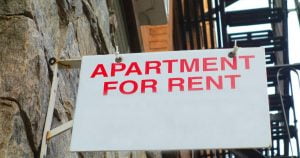Building Wealth through Rental Properties: A Guide
Go Back To Previous PageInvesting in rental properties is one of the most proven ways to build wealth from real estate. However, it can seem challenging, especially for those new to real estate investing. Fortunately, with the proper knowledge and strategy, anyone can succeed as a rental property investor. Whether you’re looking to supplement your income, build a nest egg, or achieve long-term financial freedom, rental properties offer a lucrative opportunity.
We explore rental property investment and how you can make the best decisions for maximum returns.
Setting Clear Investment Goals
Like any other type of real estate investing, you should be clear on what you want from your investment before proceeding. Some key considerations for rental property investment include:
investment include:
- Cash Flow
Do you want to generate a certain monthly or annual income from your rentals?
- Property Appreciation
Are you seeking a long-term appreciation in property value?
- Growth
Do you want to build an extensive portfolio of rental properties or focus on a few high-performing assets?
- Risk Tolerance
How much risk are you willing to take on? Are you comfortable with potential vacancies or market fluctuations?
- Time Horizon
How long are you willing to wait before you start seeing returns on your investment?
- Leverage
Do you want to use financing to amplify your returns or invest cash only?
Setting clear investment goals allows you to focus on your investment strategy, measure progress, and adjust your strategy as required. It also aids in maintaining motivation and dedication to your investment strategy in the face of obstacles.
Rental Property Types
There are various categories of rental properties for investors. Each property type has its unique characteristics, advantages, and challenges. Understanding these differences is crucial for investors, landlords, and property managers to make informed decisions and cater to specific tenant needs.
Common types of rental properties include:
- Residential Properties: Single-family homes, condominiums, and townhouses
- Commercial Properties: Office buildings, retail spaces, and industrial properties
- Vacation Rentals: Vacation homes, condos, and beach houses
- Student housing: Apartments near colleges or shared living spaces for students
- Storage Facilities: Self-storage units and mini-storage facilities
Factors to Consider Before Buying a Rental Property
Before you commit your funds to any rental investment, it’s essential to consider the following factors:
Location
As the saying goes, location, location, and location are the three things that matter in property investment. Before buying a rental property, consider its proximity to amenities, scenic views, green spaces, and the overall business environment. The property’s location can greatly influence its value and rental potential.
Rental Market
Understanding the rental market in your target location is essential as it can impact your potential income, expenses, and overall return on investment. Find out whether there is a demand for rentals and the average rent prices. When assessing the rental market, seasonal fluctuations in rental prices, vacancy rates, and rent growth are some factors to investigate.
Insurance and Risk
As a rental property owner, insurance for landlords shields you from the risk of financial losses due to damage to your property and fixtures. Property insurance helps safeguard your investment and ensures continuity of rental income.
Legal Requirements
When considering rental property investment, it’s necessary to familiarize yourself with landlord-tenant laws in your investment location. Understanding these laws helps you stay on the right side of the law and avoid disputes and penalties. You should also understand how your property’s income taxes and depreciation value affect your investment. Legal requirements vary by location, so consulting a local attorney for advice may be helpful.
Due Diligence and Inspections
When you settle on a property you want to acquire, it’s crucial to perform due diligence and inspect the property before you pay. You want to check for hidden defects, land-use issues, environmental hazards, or financial liens. Due diligence helps you make an informed decision and prevents you from costly surprises down the road.
Managing and Maintaining Your Rental
Managing and maintaining your rental is critical to ensuring it remains in good condition to maximize its income potential. If you’re new to property management or may not have the time to oversee your rental’s day-to-day running, you should consider hiring a property manager. The property manager’s job includes minimizing vacancies and turnover, reducing legal risks, and improving tenant satisfaction and retention.
Exit Strategy
It’s important to have an exit strategy for your rental if, for some reason, you don’t hit your investment goals. Depending on the circumstances, you could sell, refinance, or foreclose. An exit strategy allows you to plan for all possible outcomes and make informed decisions in the future.
Financing Your Investment
There are several options for rental property investment financing. These include:
Conventional Loan
You can finance a rental property investment by taking a traditional loan from a bank or lending institution. These loans require a high credit score and a minimum down payment.
Home Equity Line of Credit (HELOC)
A HELOC enables you to access funds using your home’s equity as collateral. This loan provides you with a single payment to support your investment, and you will pay it back in regular installments with a set interest rate.
Hard Money Loans
Hard money loans are short-term loans used by people who need funds when traditional lending options are unavailable quickly. This loan is secured by the investment property you’re purchasing and comes with higher interest rates.
Seller Financing
Seller financing is when the property owner acts as the lender, allowing you to buy an investment property and pay in installments. This benefits both parties, but consult a legal professional to ensure a smooth transaction.
Conclusion
Rental property investment offers a pathway to portfolio diversification and financial freedom. By understanding the workings of the rental market, new and experienced investors can get on the path to lasting wealth. However, building wealth through rental property or any other form of real estate investing is a marathon and not a sprint. It requires patience, persistence, and a willingness to learn and adapt. So, start today and begin your journey to unlock immense financial possibilities.


